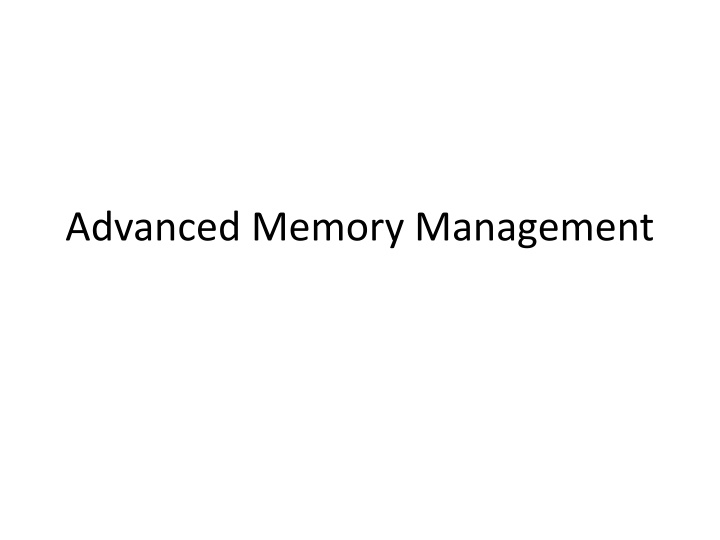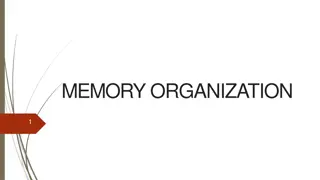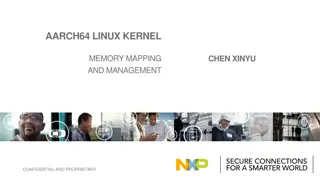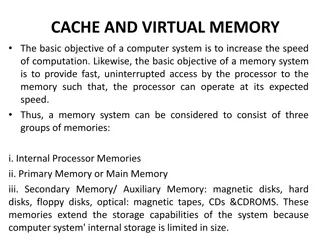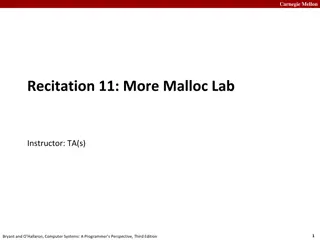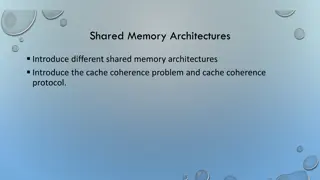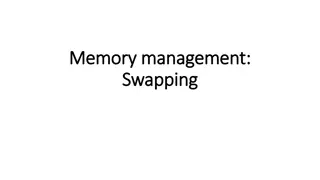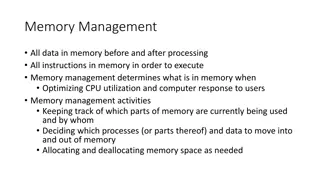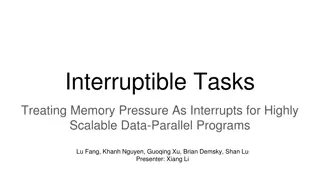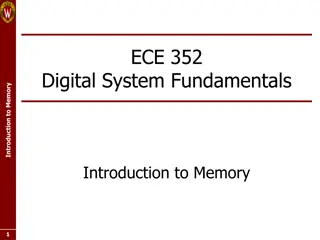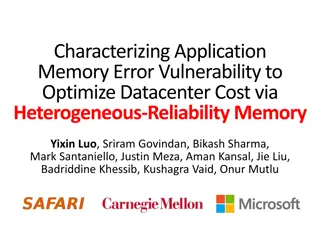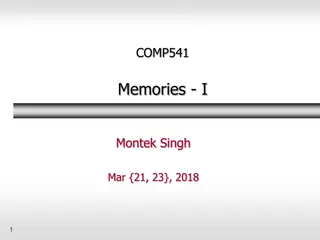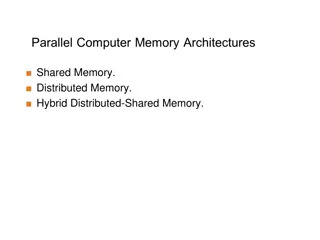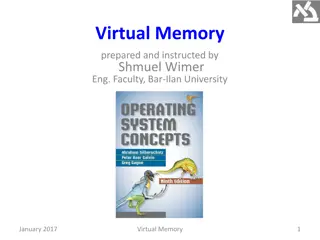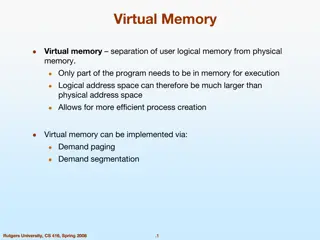Advanced Memory Management Applications
This content delves into advanced memory management techniques including address translation, process isolation, program debugging, zero-copy I/O, virtual memory, and more. It explores the uses of memory management in various fields such as file systems, persistent storage, efficient interprocess communication, demand-paged virtual memory, and process migration. Additionally, it discusses the implementation of persistent data structures, distributed shared memory, and ways to enhance web server performance through memory management strategies.
Download Presentation

Please find below an Image/Link to download the presentation.
The content on the website is provided AS IS for your information and personal use only. It may not be sold, licensed, or shared on other websites without obtaining consent from the author.If you encounter any issues during the download, it is possible that the publisher has removed the file from their server.
You are allowed to download the files provided on this website for personal or commercial use, subject to the condition that they are used lawfully. All files are the property of their respective owners.
The content on the website is provided AS IS for your information and personal use only. It may not be sold, licensed, or shared on other websites without obtaining consent from the author.
E N D
Presentation Transcript
Main Points Applications of memory management What can we do with ability to trap on memory references to individual pages? File systems and persistent storage Goals Abstractions Interfaces
Address Translation Uses Process isolation Keep a process from touching anyone else s memory, or the kernel s Efficient interprocess communication Shared regions of memory between processes Shared code segments E.g., common libraries used by many different programs Program initialization Start running a program before it is entirely in memory Dynamic memory allocation Allocate and initialize stack/heap pages on demand
Address Translation (more) Program debugging Data breakpoints when address is accessed Zero-copy I/O Directly from I/O device into/out of user memory Memory mapped files Access file data using load/store instructions Demand-paged virtual memory Illusion of near-infinite memory, backed by disk or memory on other machines
Address Translation (even more) Checkpoint/restart Transparently save a copy of a process, without stopping the program while the save happens Persistent data structures Implement data structures that can survive system reboots Process migration Transparently move processes between machines Information flow control Track what data is being shared externally Distributed shared memory Illusion of memory that is shared between machines
Zero Copy I/O Block Aligned Read/Write System Calls
Hardware Support for Virtual Machines x86 recently added hardware support for running virtual machines at user level Operating system kernel initializes two sets of translation tables One for the guest OS One for the host OS Hardware translates address in two steps First using guest OS tables, then host OS tables TLB holds composition
Question At what point can we resume the execution of a checkpointed program? When the checkpoint starts? When the checkpoint is entirely on disk?
Deterministic Debugging Can we precisely replay the execution of a multi-threaded process? If process does not have a memory race From a checkpoint, record: All inputs and return values from system calls All scheduling decisions All synchronization operations Ex: which thread acquired lock in which order
Process Migration What if we checkpoint a process and then restart it on a different machine? Process migration: move a process from one machine to another Special handling needed if any system calls are in progress Where does the system call return to?
Cooperative Caching Can we demand page to memory on a different machine? Remote memory over LAN much faster than disk On page fault, look in remote memory first before fetching from disk
Distributed Virtual Memory Can we make a network of computers appear to be a shared-memory multiprocessor? Read-write: if page is cached only on one machine Read-only: if page is cached on several machines Invalid: if page is cached read-write on a different machine On read page fault: Change remote copy to read-only Copy remote version to local machine On write page fault (if cached): Change remote copy to invalid Change local copy to read-write
Recoverable Virtual Memory Data structures that survive failures Want a consistent version of the data structure User marks region of code as needing to be atomic Begin transaction, end transaction If crash, restore state before or after transaction
Recoverable Virtual Memory On begin transaction: Snapshot data structure to disk Change page table permission to read-only On page fault: Mark page as modified by transaction Change page table permission to read-write On end transaction: Log changed pages to disk Commit transaction when all mods are on disk Recovery: Read last snapshot + logged changes, if committed
